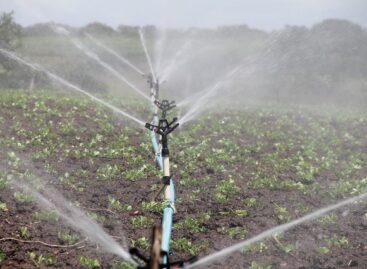It is worth choosing domestic poultry for St. Martin’s Day
This year too, goose steak cannot be missing from the Martin’s Day table. According to the overview of the National Chamber of Agriculture and the Poultry Product Council, there is no need to fear a shortage of goods this year either. The poultry products produced in Hungary, including goose and duck products, are not only tasty and safe, as well as of good quality, but special attention is also paid to animal welfare during their production.
 St. Martin’s Day is approaching, the indispensable element of the November 11 holiday is goose steak and new wine, which is usually tasted for the first time at this time. Although the tradition of St. Martin’s Day was most widespread in the western half of Europe, few people know that the cult of St. Martin flourished in our country even before the conquest. According to tradition, St. Martin rushed to the defense of King St. István and the country in a dream, and as a sign of respect for the king, he painted the image of the general Martin on his flags. This is how St. Martin became the country’s second patron after the Virgin Mary.
St. Martin’s Day is approaching, the indispensable element of the November 11 holiday is goose steak and new wine, which is usually tasted for the first time at this time. Although the tradition of St. Martin’s Day was most widespread in the western half of Europe, few people know that the cult of St. Martin flourished in our country even before the conquest. According to tradition, St. Martin rushed to the defense of King St. István and the country in a dream, and as a sign of respect for the king, he painted the image of the general Martin on his flags. This is how St. Martin became the country’s second patron after the Virgin Mary.
While the consumption of duck meat is no longer considered seasonal, the demand for goose products is still primarily linked to a few holidays – St. Martin’s Day, Christmas, Easter.
According to the joint overview of the National Chamber of Agriculture and the Poultry Product Council, domestic waterfowl farming and processing is showing an increase this year, although the production level and changes in the utilization directions within each species are different.
Within the goose sector, the one million fattened geese produced and slaughtered so far this year – based on their live weight – corresponds to an increase of about 8 percent compared to last year’s level. On the other hand, the 1.2 million geese used for meat are 18 percent less than last year. Hungary plays a leading role in the production of fattened foie gras, the entire kosher-recognized quantity is produced in our country, and this product line can maintain the previous production level for the time being.
Waterfowl products are primarily exported (about 80%), and the majority of domestic consumption is through catering. Thus, the domestic market is disturbed only if production is at such a low level due to the bird flu epidemic that not enough goods reach the domestic market in the preferred period. Due to the seasonality of goose meat consumption, the demand is not even. Due to the previous avian flu epidemic, which also hit France hard, the commodity base decreased significantly, which provided favorable market opportunities for the Hungarian waterfowl sector, however, the increase in the level of production is currently resulting in very weak export prices.
Related news
NAK: farmer needs assessment can help the development of irrigation training
🎧 Hallgasd a cikket: Lejátszás Szünet Folytatás Leállítás Nyelv: Auto…
Read more >Related news
Nestlé to sell remaining ice-cream assets but commits to Froneri venture
🎧 Hallgasd a cikket: Lejátszás Szünet Folytatás Leállítás Nyelv: Auto…
Read more >40 secure jobs, sustainable solutions – new BURGER KING® in Csepel
🎧 Hallgasd a cikket: Lejátszás Szünet Folytatás Leállítás Nyelv: Auto…
Read more >









